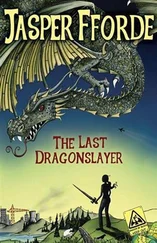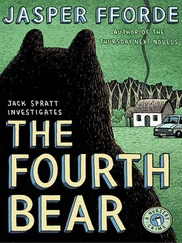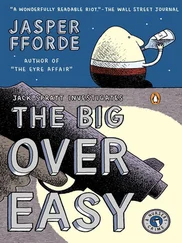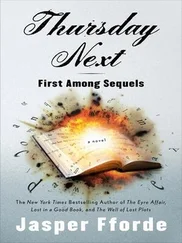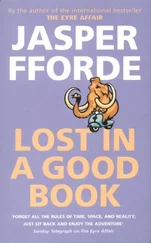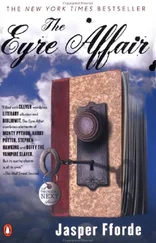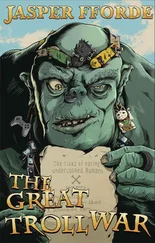‘Good news,’ said Lance as we sat together on the defence bench, the morning of my sentencing. ‘I found a boxed set of Judge John Deed in Oxfam and have watched the entire series twice and made copious notes. Let me tell you,’ he added in a confident manner, ‘there is nothing I don’t know about procedure within the British legal system.’
‘OK,’ I said, not sharing his confidence. ‘You do know that Judge John Deed is actually one of the least realistic British TV courtroom drama series?’
‘Is it?’ said Lance, genuinely surprised. ‘That might cause a few problems with your defence – but I’m sure we’ll muddle through. Now,’ he said, ‘which one is the judge?’
‘She’s not in yet. You’ll know it’s her because she’ll be wearing a wig and you’ll be asked to stand.’
I took a deep breath and looked about. The public gallery was full, but there were only two rabbits, neither of whom I recognised.
Once we had stood for the judge and were all then reseated, the usual legal preamble went backwards and forwards while Lance doodled a picture of a carrot on his legal pad. When asked to confirm the plea I had entered earlier, he suddenly stood up.
‘I would like to put forward a motion that all charges be withdrawn.’
The prosecution barrister also stood up.
‘The prosecution will vigorously oppose any downgrading of the charge to manslaughter,’ he said.
‘You didn’t hear me,’ said Lance, ‘we do not seek a reduction to manslaughter, but a dropping of all charges. My client will also change his plea to not guilty to intimate association, for which the court will have to furnish compelling evidence beyond the testimony of witnesses who are either dead or can be demonstrably proven to have anti-rabbit bias by belonging to TwoLegsGood, a membership list of which I will enter as defence exhibit A. Regarding my client’s confession, we will come to that later when I outline how, although not coerced by police, my client was nonetheless coerced.’
There was a stunned silence as Lance deBlackberry finished his short speech. The clerks looked at one another and shrugged, and the two prosecution barristers stared at Lance incredulously.
‘I have to say I’m intrigued but not convinced by this, Mr deBlackberry,’ said the judge, ‘but I will hear your arguments.’
Lance thanked the judge and continued.
‘The crime of murder can only be committed between two humans. Since we know that Mr Ffoxe was of dual taxonomic status and is to be considered a human for the purposes of this trial, it is this status I challenge. Since he was in that house to kill rabbits then it follows that on the evening of his death Mr Ffoxe should be defined as a fox – if he wasn’t, then he would legally not be allowed to murder a rabbit, any more than a human is allowed to kill an anthropomorphised rabbit. The law affords us that protection.’
He paused.
‘So if the victim was legally a fox, then my client’s act becomes simply a man shooting a fox, which he is legally permitted to do under the 1854 Destruction of Countryside Pests Act.’
The prosecution lawyer stood up again.
‘While we concede that legally Mr Ffoxe was required to be a fox to kill rabbits but a human to be a victim of murder, we contend that Mr Ffoxe was legally a human when killed as he had not yet done anything that would define him as a fox in the eyes of the law.’
But Lance was not yet done.
‘This is not a question about when my learned colleague decides – arbitrarily – that a fox is a human or a fox; this is a question of intent. If Mr Ffoxe entered the Rabbits’ house with the sole purpose of terrifying and killing the Rabbit family then he would be very much defined as a fox, and that being so – he cannot be murdered.’
‘Defence counsel may be technically correct,’ said the prosecution, ‘but since we have no sense of Mr Ffoxe’s intent when he entered the Rabbits’ house, then it cannot be proven that he was there to kill rabbits. He may have been wanting to interview them, or offer a warning. Or simply request a glass of water.’
‘A fox does not go into a rabbit’s house with any other intent,’ said Lance, ‘but I concede that his state of mind is unknowable. But will prosecution counsel agree that the victim’s intent has a direct bearing on his taxonomic status?’
‘We do, Your Honour,’ said the prosecution barrister.
‘Good,’ said Lance, ‘then I would contend on the basis of that notion that the perpetrator’s intent must also have a direct bearing on the victim’s taxonomic status. My contention is that since Mr Knox was in that house to do a little fox-hunting, then by learned counsel’s arguments, Mr Ffoxe must be classed taxonomically as a fox – and can therefore be legally killed by a human.’
The prosecution seemed more amused than annoyed by Lance’s words.
‘Does learned council,’ he began in a haughty tone, ‘honestly expect this court to believe that his client was engaging in fox-hunting? I need hardly remind him that this is not a court of conjecture and fantasy, but one that depends upon burden of proof. The defendant’s confession makes no mention of being out for a little fox-hunting, and it seems a stretch for the court to accept this line of reasoning. In none of the photographic evidence can the defendant be seen having a pack of hounds, a horse or a hunting horn, nor was he even dressed in Pink.’
There was a ripple of laughter around the court at this, but not from the rabbits in the public gallery, who had been hanging on Lance’s every word.
‘Ah, yes,’ said Lance, ‘the confession to which I alluded earlier. Mr Knox was in fear of his life from the Hominid Supremacist group TwoLegsGood, who are well known to despise rabbits and are not keen on anyone who kills foxes, and there is strong circumstantial evidence – despite the stories you have read in the media – that it was they who burned the Rabbits’ house down, set fire to Mr Knox’s house, and murdered the Rabbits in their own home. Furthermore, they threatened Mr Knox with a punishment that is well known to be one meted out to those humans who are reputed to side with rabbits – the removal of the thumbs, usually with a bolt-cutter. A threat, the court can see, that was carried out, despite Mr Knox agreeing to confess to everything. His confession, therefore, is unreliable, and should be deemed inadmissible.’
There was a short pause, and someone entered at the back of the courtroom, walked forward and handed a note to the more junior of the prosecution barristers. He read the note, then stood up.
‘If it pleases the court,’ said the prosecutor, ‘I have just received a shocking communication that is pertinent to the proceedings here today. To the effect that opposing counsel, Mr Lance deBlackberry, does not have any professional credentials qualifying him to practise law and has thus fraudulently misrepresented himself, and should be immediately removed from the courtroom pending criminal charges.’
I had seen the junior barrister texting under the table as soon as Lance started to speak, and realised what was going on. Lance had cultivated a sense of incompetence for a very good reason.
‘We would also,’ said the senior prosecutor, ‘move for an adjournment of the proceedings until such time as Mr Knox can be properly represented.’
Lance, however, was not fazed in the least.
‘My legal diploma,’ he said in a loud, clear voice, ‘was sent to the court, which had ample time to review my credentials, but did not. My presence here is simply to undermine my client’s case and ensure Mr Knox be jailed for the maximum time possible. I was permitted and encouraged to represent Mr Knox only so I could fail.’
Читать дальше



